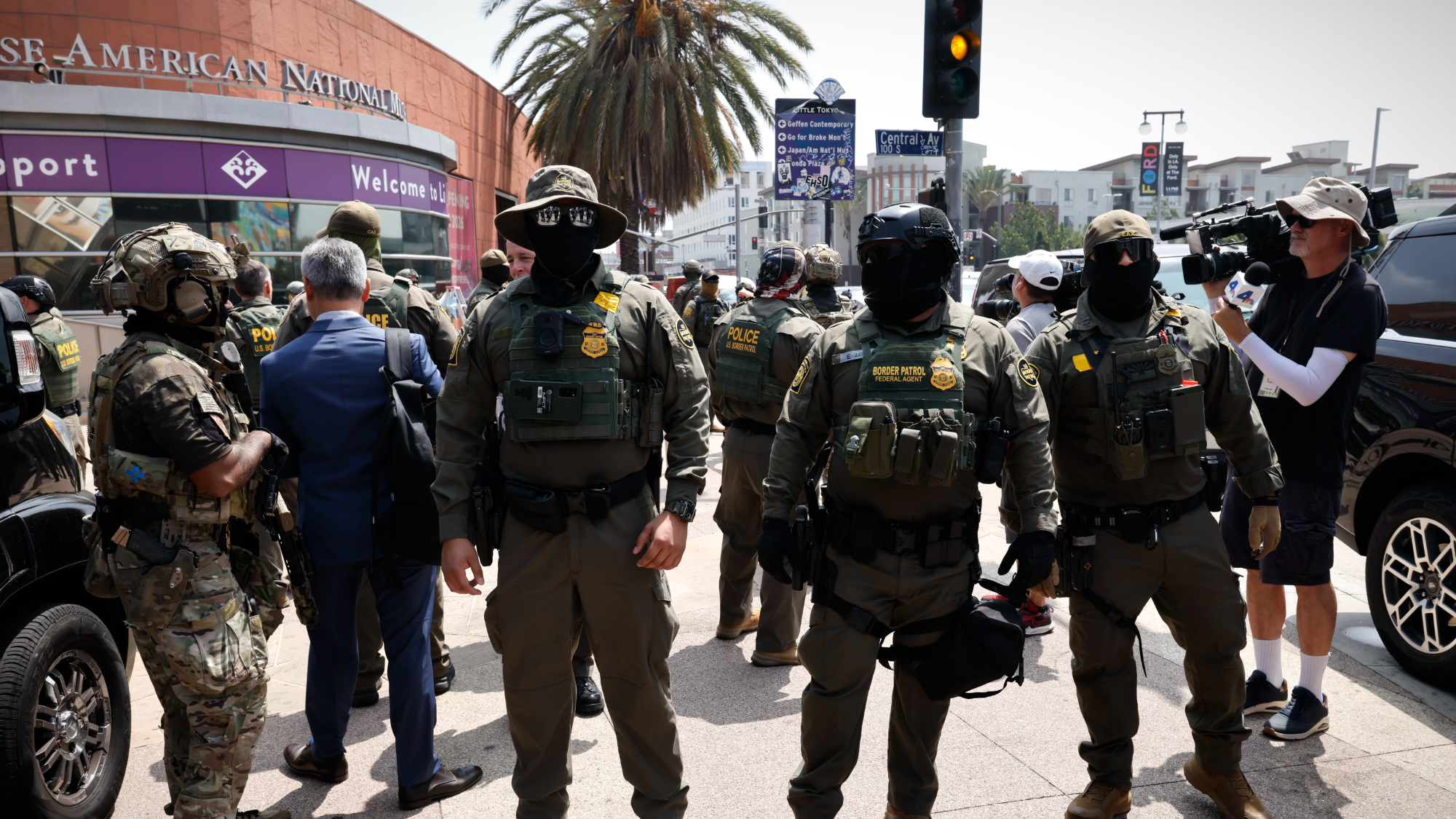DOJ reportedly informs Trump he's a target of criminal investigation, suggesting indictment

A free daily email with the biggest news stories of the day – and the best features from TheWeek.com
You are now subscribed
Your newsletter sign-up was successful
Federal prosecutors have recently sent former President Donald Trump and his lawyers a letter informing the former president he's the target of a criminal investigation involving his handling of classified documents, several major news organizations reported Wednesday evening. Such "target letters" are usually sent to people about to be indicted, giving them a chance to plead their case to prosecutors or a grand jury.

It is possible special counsel Jack Smith will not charge Trump in the documents case, but the target letter, a meeting Monday with Trump's lawyers, and a recent flurry of witnesses appearing before two grand juries — one in Washington, D.C., and another in Miami that started meeting last month — "have signaled that Smith's probe was nearing a likely charging decision, which now appears days, if not hours, away," Politico reported. Former Trump spokesman Taylor Budowich appeared before the Miami grand jury on Wednesday.
Aides and advisers to Trump spent Wednesday "in a state of high tension," especially after conservative journalist and former Trump National Archives liaison John Solomon reported that prosecutors were moving to indict Trump "imminently," The New York Times said. Trump told the Times and also wrote on social media that nobody had told him he is being indicted, but he declined to say if he was told he's a target of the investigation.
The Week
Escape your echo chamber. Get the facts behind the news, plus analysis from multiple perspectives.

Sign up for The Week's Free Newsletters
From our morning news briefing to a weekly Good News Newsletter, get the best of The Week delivered directly to your inbox.
From our morning news briefing to a weekly Good News Newsletter, get the best of The Week delivered directly to your inbox.
If prosecutors do charge Trump in the documents case, "it remains an open question" whether Smith's team "would file an indictment in Washington, Miami or both cities," the Times reported. "While many of the central events in the documents inquiry occurred in Florida — perhaps most notably the search of Mar-a-Lago last summer — the case was opened by national security prosecutors working out of the Justice Department in Washington."
Because "the bulk of the conduct at issue in the investigation" occurred in South Florida, Smith's team is now "planning to bring a significant portion of any charges" in Miami, The Washington Post reported. "That approach by prosecutors does not rule out the possibility of some charges, such as perjury or false statements, being filed in Washington," however. Along with aligning the venue with the scene of any alleged crimes, The Wall Street Journal added, "bringing a case in Florida would help avoid arguments from Trump's lawyers he would be deprived a fair trial by Washington jurors, whom they perceive as skewing Democratic."
A free daily email with the biggest news stories of the day – and the best features from TheWeek.com
Peter has worked as a news and culture writer and editor at The Week since the site's launch in 2008. He covers politics, world affairs, religion and cultural currents. His journalism career began as a copy editor at a financial newswire and has included editorial positions at The New York Times Magazine, Facts on File, and Oregon State University.
-
 American universities are losing ground to their foreign counterparts
American universities are losing ground to their foreign counterpartsThe Explainer While Harvard is still near the top, other colleges have slipped
-
 How to navigate dating apps to find ‘the one’
How to navigate dating apps to find ‘the one’The Week Recommends Put an end to endless swiping and make real romantic connections
-
 Elon Musk’s pivot from Mars to the moon
Elon Musk’s pivot from Mars to the moonIn the Spotlight SpaceX shifts focus with IPO approaching
-
 Judge rejects California’s ICE mask ban, OKs ID law
Judge rejects California’s ICE mask ban, OKs ID lawSpeed Read Federal law enforcement agents can wear masks but must display clear identification
-
 Lawmakers say Epstein files implicate 6 more men
Lawmakers say Epstein files implicate 6 more menSpeed Read The Trump department apparently blacked out the names of several people who should have been identified
-
 Japan’s Takaichi cements power with snap election win
Japan’s Takaichi cements power with snap election winSpeed Read President Donald Trump congratulated the conservative prime minister
-
 Trump links funding to name on Penn Station
Trump links funding to name on Penn StationSpeed Read Trump “can restart the funding with a snap of his fingers,” a Schumer insider said
-
 Trump reclassifies 50,000 federal jobs to ease firings
Trump reclassifies 50,000 federal jobs to ease firingsSpeed Read The rule strips longstanding job protections from federal workers
-
 Is the Gaza peace plan destined to fail?
Is the Gaza peace plan destined to fail?Today’s Big Question Since the ceasefire agreement in October, the situation in Gaza is still ‘precarious’, with the path to peace facing ‘many obstacles’
-
 Vietnam’s ‘balancing act’ with the US, China and Europe
Vietnam’s ‘balancing act’ with the US, China and EuropeIn the Spotlight Despite decades of ‘steadily improving relations’, Hanoi is still ‘deeply suspicious’ of the US as it tries to ‘diversify’ its options
-
 Trump demands $1B from Harvard, deepening feud
Trump demands $1B from Harvard, deepening feudSpeed Read Trump has continually gone after the university during his second term
